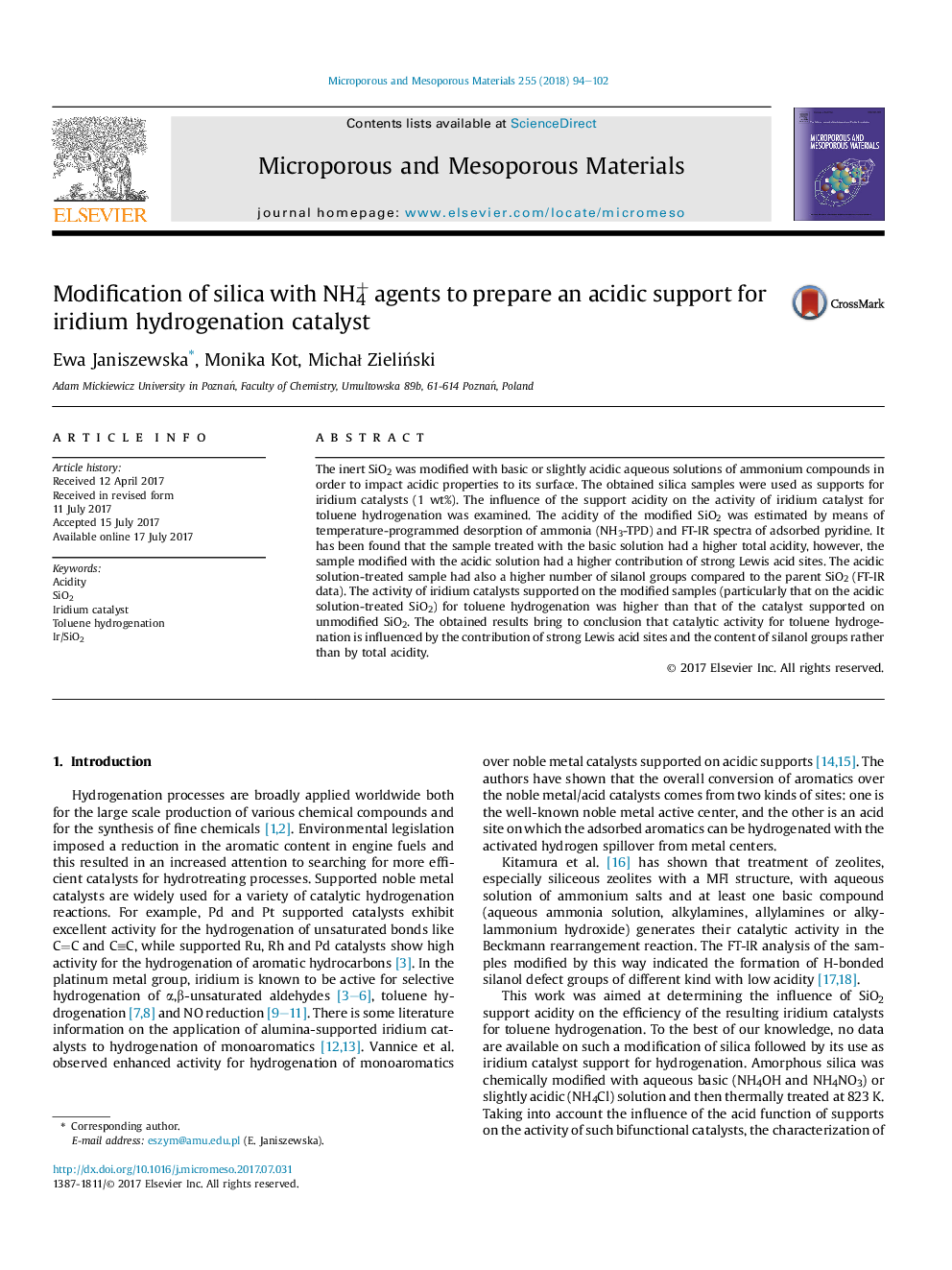| Article ID | Journal | Published Year | Pages | File Type |
|---|---|---|---|---|
| 4758116 | Microporous and Mesoporous Materials | 2018 | 9 Pages |
â¢Generation of surface acidity of silica by means of treatment with ammonium salts.â¢Beneficial impact of support acidity on efficiency of Ir catalyst for toluene hydrogenation.â¢Influence of appropriate contribution of strong Lewis acid sites and OH groups on catalytic activity.
The inert SiO2 was modified with basic or slightly acidic aqueous solutions of ammonium compounds in order to impact acidic properties to its surface. The obtained silica samples were used as supports for iridium catalysts (1Â wt%). The influence of the support acidity on the activity of iridium catalyst for toluene hydrogenation was examined. The acidity of the modified SiO2 was estimated by means of temperature-programmed desorption of ammonia (NH3-TPD) and FT-IR spectra of adsorbed pyridine. It has been found that the sample treated with the basic solution had a higher total acidity, however, the sample modified with the acidic solution had a higher contribution of strong Lewis acid sites. The acidic solution-treated sample had also a higher number of silanol groups compared to the parent SiO2 (FT-IR data). The activity of iridium catalysts supported on the modified samples (particularly that on the acidic solution-treated SiO2) for toluene hydrogenation was higher than that of the catalyst supported on unmodified SiO2. The obtained results bring to conclusion that catalytic activity for toluene hydrogenation is influenced by the contribution of strong Lewis acid sites and the content of silanol groups rather than by total acidity.
Graphical abstractDownload high-res image (278KB)Download full-size image
